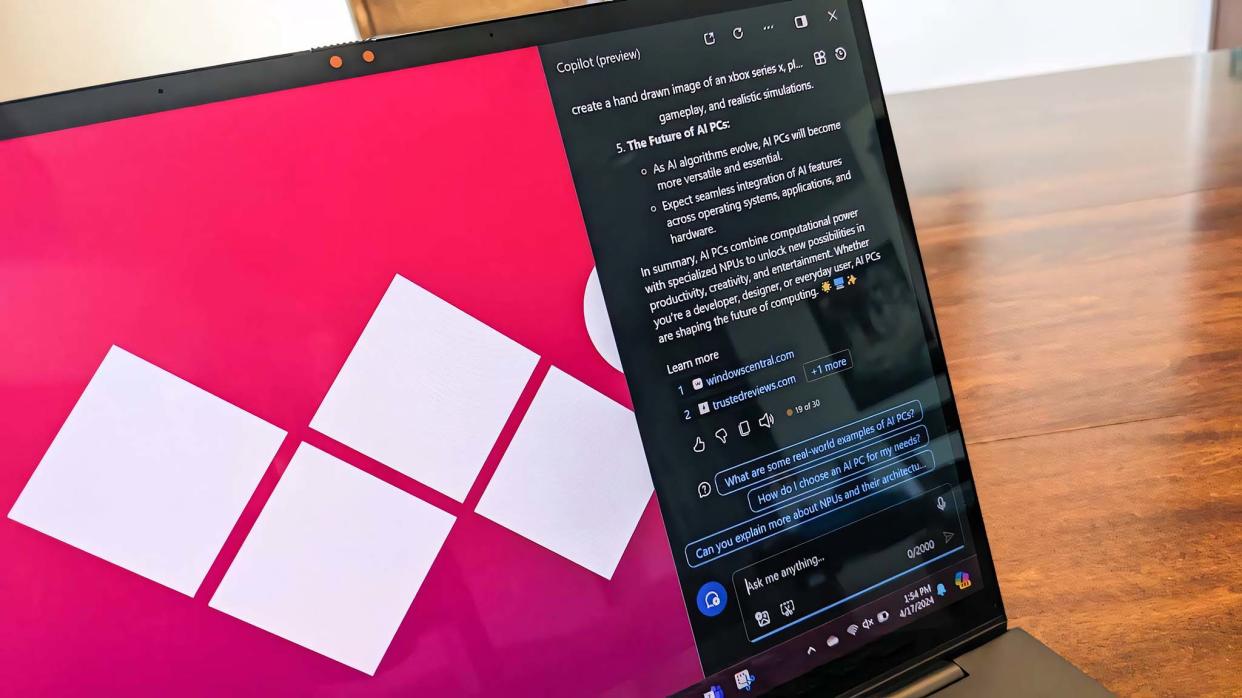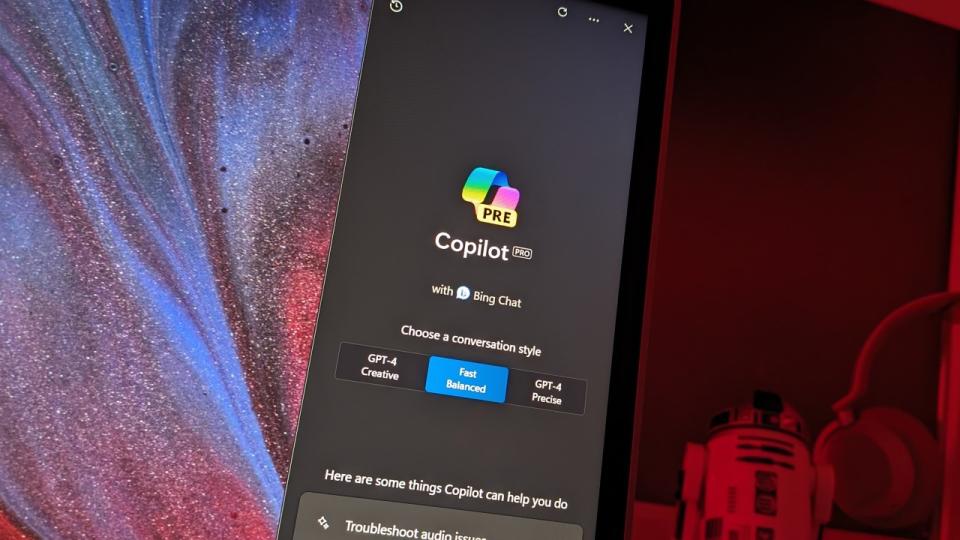Microsoft pumps the brakes on Copilot AI to refine its experiences in Windows 11 based on what users 'ACTUALLY' want

What you need to know
Microsoft recently announced it will slow down the integration of new experiences for Copilot in Windows.
Based on user feedback, the company will use this time to refine the tool's experience.
Copilot in Windows will continue to work as usual during this phase.
Microsoft has been fully focused on integrating AI advances across its services and products after making a multi-billion dollar investment in OpenAI. The Windows operating system is a significant beneficiary of the extended partnership with the ChatGPT maker.
As you might already know, Windows 11 and 10 ships with a dedicated AI-powered assistant dubbed Microsoft Copilot (formerly Bing Chat). Copilot AI is also consistent across Microsoft Edge and Bing. In Microsoft's recent earnings call, CEO Satya Nadella indicated Bing has surpassed over 140 million daily active users, further attributing the impressive feat partly to the platform's new AI advances and capabilities.
The tech giant's AI advances have seemingly been received with mixed feelings. Interestingly, in a poll featured on Windows Central seeking to understand how helpful Copilot is to people, the vast majority, more than half of the polled readers, indicated they never use Copilot on Windows 11.
And now, as it turns out, Microsoft is pumping brakes on its Copilot advances in Windows 11. According to a recent Windows 11 Insider Preview Build:
"Over the last few months, we've been trying out different experiences for Copilot in Windows (Preview) with Windows Insiders across the Canary, Dev, and Beta Channels. Some of these experiences include the ability for Copilot in Windows to act like a normal application window and the taskbar icon animating to indicate that Copilot can help when you copy text or images. We have decided to pause the rollouts of these experiences to further refine them based on user feedback. Copilot in Windows will continue to work as expected while we continue to evolve new ideas with Windows Insiders."
To this end, it's unclear why Microsoft has made the decision aside from refining Copilot's experiences based on user feedback. This news comes after Microsoft had previously indicated that ChatGPT isn't better than Copilot, further stating the tool isn't being used as intended.
Strangely enough, the company even deployed some of its Teams Chat app staffers to lend a hand with Copilot AI advances shortly after the EU antitrust watchdog forced it to unbundle Teams from its Office 365 package globally.
Microsoft Copilot is about to get better, maybe?

Concern has been raised about Microsoft's AI advances in its Windows operating system, including Copilot. Subsequent changes and improvements integrated into the OS have been received with mixed feelings.
The company started testing a new way to launch Copilot like an AI genie if you so much as tickle the taskbar. Strangely, Microsoft also started testing a new way to launch Copilot AI on touch devices, which was rather upsetting for most users.
Usually, swiping right on a touch device grants access to the notification center. But after a new update rolled out to these devices, the same action launched Copilot, ultimately making it harder to access and navigate missed notifications.
It's a refreshing change of pace from Microsoft to want to improve existing Copilot experiences based on user feedback rather than continuing to ship new experiences without addressing the existing issues. It'll be interesting to see how Microsoft handles this situation and its impact on Copilot's user experience.


